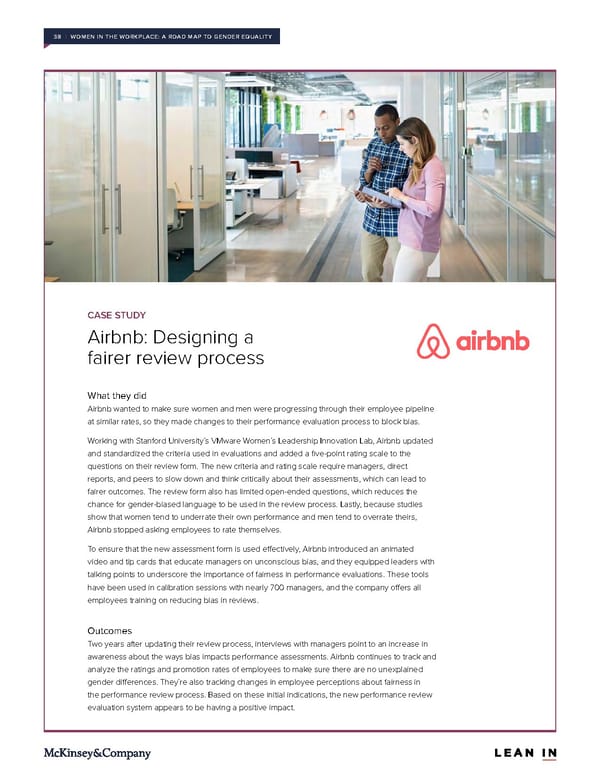38 | WOMEN IN THE WORKPLACE: A ROAD MAP TO GENDER EQUALITY CASE STUDY Airbnb: Designing a fairer review process What they did Airbnb wanted to make sure women and men were progressing through their employee pipeline at similar rates, so they made changes to their performance evaluation process to block bias. Working with Stanford University’s VMware Women’s Leadership Innovation Lab, Airbnb updated and standardized the criteria used in evaluations and added a five-point rating scale to the questions on their review form. The new criteria and rating scale require managers, direct reports, and peers to slow down and think critically about their assessments, which can lead to fairer outcomes. The review form also has limited open-ended questions, which reduces the chance for gender-biased language to be used in the review process. Lastly, because studies show that women tend to underrate their own performance and men tend to overrate theirs, Airbnb stopped asking employees to rate themselves. To ensure that the new assessment form is used effectively, Airbnb introduced an animated video and tip cards that educate managers on unconscious bias, and they equipped leaders with talking points to underscore the importance of fairness in performance evaluations. These tools have been used in calibration sessions with nearly 700 managers, and the company offers all employees training on reducing bias in reviews. Outcomes Two years after updating their review process, interviews with managers point to an increase in awareness about the ways bias impacts performance assessments. Airbnb continues to track and analyze the ratings and promotion rates of employees to make sure there are no unexplained gender differences. They’re also tracking changes in employee perceptions about fairness in the performance review process. Based on these initial indications, the new performance review evaluation system appears to be having a positive impact.
 Women in the Workplace Page 44 Page 46
Women in the Workplace Page 44 Page 46